Young Children’s Voices in Mathematical Problem Solving
Contributed by Dr Ho Siew Yin and Sng Wei Qin Abbie, from NTUC First Campus, for SingTeach Virtual […]
Read More
To mark SingTeach’s 10th-year anniversary, the editorial team reflects on the purpose of our work. We also invite various educators to share with us their hopes for the education fraternity and education in Singapore.
A Note from the Editorial Team
When SingTeach was first launched in 2005, there was a dearth of publications dedicated to connecting education research and classroom practices for teachers in Singapore. We set out to fill that gap.
SingTeach has grown from strength to strength. Today, our print version reaches all primary and secondary schools, junior colleges and other educational organizations in Singapore. It is read by both local teachers and a worldwide audience from countries such as Malaysia, India, the Philippines, Australia, the US and the UK.
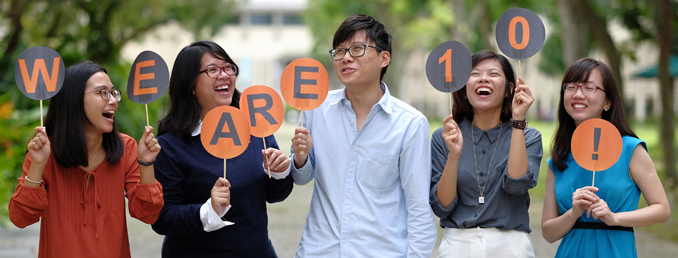
The SingTeach Editorial Team: (From left) Nur Haryanti Sazali, Sahira Zulkifli, Clement Lim, Gina Goh and June Teng. (Photo courtesy of Dr Michael Tan Lip Thye, OER/NIE.)
Ten years on, our mission remains the same: We want to tell compelling stories of research that improve teaching and learning in schools, and innovative practices that teachers are trying in their classrooms.
To that end, we sought out and interviewed hundreds of researchers, educators, school leaders, teacher educators and policymakers. There is one thing about them that struck us: their quiet optimism.
It is said that teaching is the greatest act of optimism, because the true extent of its impact will only be known years later. The same can also be said of education research.
Shortcuts to success are hard to come by in education. These individuals have been working away, steadily and often quietly, to make small, incremental improvements to the education system, be it the NIE academic and ASEAN Para Games medallist Dr Wong Meng Ee, who is introducing assistive technology into classrooms for special needs students, or the teachers from Pasir Ris Primary School who used concept cartoons to help their pupils understand science concepts, and have since expanded their efforts.
For this special issue, we catch up with them and other past interviewees to find out how their efforts have progressed or evolved since we last spoke. You can read about them in the Research and Classroom stories.
In the People Section, we talk to SingTeach’s founding editor Professor S. Gopinathan on why he started the publication.
For this issue’s Big Idea story, we also invite eight members of the education fraternity to tell us their hopes for their fellow educators and education in Singapore.
We would like to express our gratitude to all our readers for your support. A decade is a long time in this fast-changing world—thank you for staying with us. May we continue to be part of your teaching journey for the next 10!
Cheers,
The SingTeach Editorial Team (noreply@singteach.nie.edu.sg)
Professor Tan Oon Seng, Director of National Institute of Education, Singapore
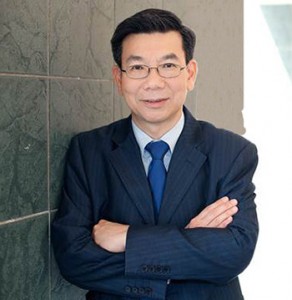
How mature is the teaching fraternity in Singapore? To answer this question, we could perhaps look at how they handle the persistent blitz of the “latest” trends or innovations in teaching and learning.
Teachers who are confident in what they are doing will not be easily swayed by ideology, fads or marketing tactics. They will be more discerning than that. When it comes to thinking about which pedagogical approaches to approach, a mark of increasing professionalism is the extent to which teachers appreciate the value of research- and evidence-based pedagogical innovations.
SingTeach is one of the ways NIE informs and engages teachers in thinking about research pedagogical innovation. I am glad to note that today, copies of SingTeach reach all schools and junior colleges in Singapore. Readership has been growing steadily over the past decade.
In countries such as the US, it has often been lamented that practitioners and researchers have different orientations towards educational issues and that research is not informing practice. One major reason is the lack of communication amongst stakeholders and the lack of alignment in resources for greater convergence of goals. At NIE, we always say that the genesis of our research is the classroom and the impact of our research is on the learner.
At the recent Redesigning Pedagogy International Conference 2015 in June, more than 90 schools and 10 Ministry of Education (MOE) departments presented papers, symposia and workshops. I was very heartened by the quality of research demonstrated by our school teachers. The strong research-practice nexus characterizing our education community reflects the growing professionalism and the capacity of our teachers to learn and innovate in this fast-changing world.
Professor David Hung, Associate Dean (Education Research), Office of Education Research; Professor, Learning Sciences & Technologies Academic Group, NIE
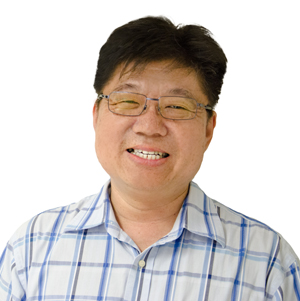 SingTeach was launched at a time when education research was taking flight in Singapore. The Centre for Research in Pedagogy and Practice was established in 2003 by NIE and funded by the MOE to examine and improve educational practices. The Learning Sciences Lab was set up in 2005 to explore teaching and learning not just in schools but also in informal learning contexts.
SingTeach was launched at a time when education research was taking flight in Singapore. The Centre for Research in Pedagogy and Practice was established in 2003 by NIE and funded by the MOE to examine and improve educational practices. The Learning Sciences Lab was set up in 2005 to explore teaching and learning not just in schools but also in informal learning contexts.
In 2014, the Education and Cognitive Development Lab was conceived to look into the impact of children’s cognitive and non-cognitive capabilities, disposition, and out-of-school influences on their learning and development.
Since 2003, we are happy to see that NIE researchers have worked with hundreds of schools for more than 300 research projects. As part of the growth of professional learning communities in schools and the call for teachers to be reflective practitioners, more teachers have also embarked on their own research endeavours. While education research is considered nascent here compared to other countries, we have done excellently as an education system, and NIE is ranked among the top in international rankings for its research.
These developments bode well for our education system. Our education fraternity is made up of many individuals who do not believe in resting on their laurels, or doing things in ways they have always been done. My hopes for my fellow educators and researchers would be to continue to keep oneself in the passion for learning, and doing meaningful and impactful research. Practice cannot be divorced from research in education, and I hope that my fellow educators would keep very close links to schools. How else would we be able to influence and make meaningful impact? We should always remember to put the learner at the heart of whatever we do, be it teaching or research. Let’s recognize that students have multiple talents and have a diversity of interests. Our job is to bring out the best in them.
As for my hope for education in Singapore, as a parent myself, I hope that every child would have ample opportunities to excel. As parents, we sometimes get hung up about grades, because they seem like the most obvious indicators of whether our children are doing well in life. But that is not the case. Our children have talents, which if we only took time to observe and to cultivate in them, would keep them in good stead for the demands of the 21st century. In my own research, I have observed students in informal learning and in co-curricular activities and I have found amazing propensities for contributions to the future, if we only knew how to harness their talents. These opportunities in learning fosters in our children an identity founded upon their interests, passions and purposes in life and these will highly motivate them to be useful citizens in the future.
Dr Tan Liang See, Assistant Dean (School Partnerships), Office of Education Research, Research Head and Research Scientist, Centre for Research in Pedagogy and Practice, NIE
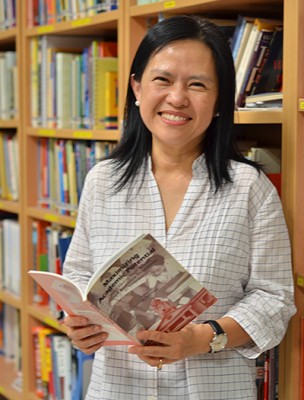
My hope for the educational fraternity is to see a growing and pervasive practice of practitioner inquiry among teachers. Whether it is the nurturing of cognitive, social or emotional aspects of the student, teachers play a significant role in making a difference in the lives of students. To make a difference, teaching needs to become a learning profession. It is crucial that teachers continue to advance their skills in delivering stimulating lessons and improve classroom practice. Thus, continuous professional learning is an integral part of a teacher’s work.
Being reflective of learning and teaching means having the courage to recognize complexities and taking initiative for change (Groundwater-Smith & Mockler, 2009).
It provides opportunities for teachers to learn by scrutinizing their practice, connecting with a professional community, and improving their capacity to enable better student learning (Carr & Kemmis, 1986; Somekh & Zeichner, 2009; York, 2005).
Whether collectively or individually, such inquiry process is best situated within the school context, in a natural setting where teachers have to respond wisely to the needs, circumstances and particulars of practical situations.
This process opens the space for professional conversations and foster shared insights about teachers’ practice in learning and teaching. As such, learning and teaching are rooted in professional standards, with the emancipatory aims of harnessing the creativity and productivity of teachers.
Building a culture for learning in the educational fraternity is the key in enhancing the quality of learning and teaching in Singapore.
References
Groundwater-Smith, S., & Mockler, M. (2009). Teacher professional learning in an age of compliance : Mind the gap. Dordecht, Netherlands: Springer.
Carr, W., & Kemmis, S. (1986). Becoming critical: Education, knowledge and action research. Victoria, Australia: Deakin University Press.
Somekh, B., & Zeichner, K. (2009). Action research for educational reform: Remodelling action research theories and practices in local contexts. Educational Action Research, 17(1), 5–21.
York, L. (2005). Adult learning and the generation of new knowledge and meaning: Creating liberating spaces for fostering adult learning through practitioner-based collaborative action inquiry. Teachers College Record, 107(6), 1217–1244.
Dr Charles Chew, Principal Master Teacher (Physics), Academy of Singapore Teachers; Editorial Adviser for SingTeach
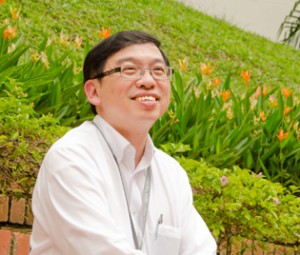
My hope for the educational fraternity is to see a growing fraternity of multi-level mentors who lead, care and inspire their mentees with a passion of educating our next generation to do their personal best for themselves, community and nation.
This hope stems from my belief on the importance of having three levels of Mindful Teacher-Leadership (Macdonald & Shirley, 2009) to develop strong mentor-mentee chains at the school (micro-level), cluster (meso-level) and zone/national (macro-level) contexts to grow reflective teachers across the system who can “learn from teaching,” and “learn for teaching” (Darling-Hammond, 2006).
At the school context, a strong mentor-mentee chain between a Senior Teacher and a Beginning Teacher can be built using professional learning community tools, such as lesson study with supportive school leadership.
At the cluster context, a strong mentor-mentee chain between a Lead Teacher and a Senior Teacher can be built through collaborative mentoring by the Lead Teacher to lead a group of Senior Teachers to conduct school-based/cluster workshops and professional development (PD) programmes for teachers.
At the zonal/national context, a strong mentor-mentee chain between a Master Teacher and a Lead Teacher can be built through facilitative mentoring by the Master Teacher to guide the Lead Teacher to conduct zonal/national workshops and PD programmes.
On a final note, besides the benefit of nurturing the pipeline of teacher leaders in a systemic and systematic manner, the litmus test of a successful fraternity of multi-level mentors is the provision of a quality student-centric values-driven education for all students in all schools in Singapore.
References
Macdonald, E. & Shirley, D. (2009). The mindful teacher. New York, NY. Teachers College Press.
Darling-Hammond, L. (2006). Constructing 21st-century teacher education. Journal of Teacher Education, 57(3), 300–314.
Mr Krishnan Aravinthan, Principal, Spectra Secondary School
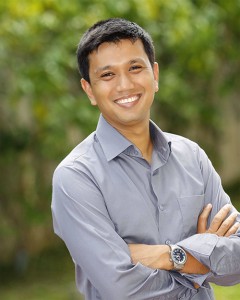
Our Singapore model and brand of education has its fair share of admirers and critics from students, teachers, parents and academics alike. While it is not perfect, I feel that it is apt to acknowledge and recognize the great strides we have taken in education as a system as we are celebrating SG50.
Our schools have been constantly evolving to meet the changing and challenging demands of nurturing and developing our students for the 21st century.
Even as we do that, my hope is that we will continue to place great emphasis on developing strong values and good character in our students. While some consider character education as being old school, values such as respect, responsibility and resilience provides our students with a moral compass to navigate the complexities of the new world.
My aspiration for our educational fraternity is to strive for greater professionalism, especially in teaching and learning. Academics and practitioners should collaborate more to strengthen the research-practice nexus.
Recently, Dr Nie Youyan from NIE collaborated with teachers from Spectra Secondary to study the impact of a Garden-Based Service learning curriculum on student engagement and motivation.
The teachers have benefitted from Dr Nie’s expertise and research findings and have made improvements to the curriculum for the second run. Such collaborations allow for more evidence-based pedagogies to inform our practice in schools. As a fraternity, we need to provide more opportunities for such collaborations to blossom.
Mr Luis Tirtasanjaya Lioe, Head of Department (Mathematics), Nanyang Girls’ High School
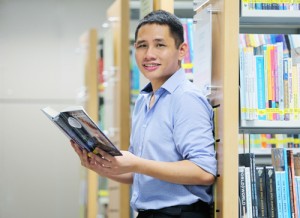
Throughout my journey as an educator, I have learned best from interacting with people from various communities. The collective wisdom in each different community helps me grow to be a better teacher in different aspects.
For example, meeting fellow teachers when attending courses can help generate creative teaching strategies.
Presenting and interacting with researchers during conferences help in sparking discussions on current educational issues that grounded in authentic data from the ground.
Interacting with other school leaders help broaden my perspective in terms of looking at organizational issues and how best to help students achieve educational objectives.
To me, the educational fraternity offers such rich resources for us to grow holistically. At the same time, we can learn from one another, driven by the common passion to do our best for our students.
I am encouraged that in recent years, more of such opportunities for teachers are growing in Singapore (for example, the growth of Network Learning Communities, teachers’ involvement in research studies).
I hope to see such platforms continue to grow, and in the spirit of holistic development of both our teachers and students, I would like to see more integration and collaboration between the various communities, so that teachers’ learning can be brought to greater heights.
Ms Jenny Lee, Subject Head of Information Communication Technologies (Special Programme), Nan Chiau Primary School
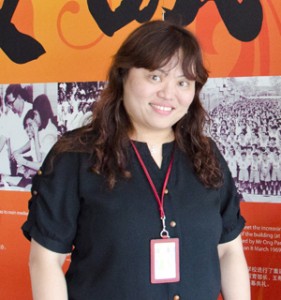
For the past century, most of what we know as educational change has been “doing old things in new ways”. Today, we are beginning to see educators do “new things in new ways”. I strongly believe that our educational beliefs impact our teaching-learning practices and our beliefs come from our own practical experiences and reflections as educators.
To me, I believe that the process of learning and teaching is by far more important than anything else. Teaching and learning should be borderless and seamless, where both teachers and students are passionately engaged in the subject matter in and outside the classroom. We will have lessons that integrate core and non-core subjects, including core curricular activities.
Learners need to participate in meaningful learning and be able to relate what they have learnt to their everyday life. Our role is not just teaching students; we are preparing the workforce of tomorrow. Thus, the desire and the skills to engage in lifelong learning is a goal I have, not only for my students, but also for myself.
Mr Fairoz Sugianto, Subject Head (History), Yuhua Secondary School
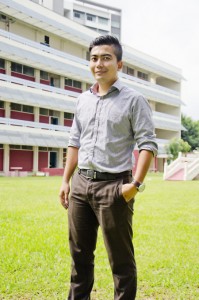
As Social Studies teachers, we play an important role in equipping our students with the necessary information so that they can participate as active citizens.
As the world becomes increasingly interconnected, students are increasingly being exposed to various complexities that the world presents. As such, we teachers play a crucial role in equipping students with the relevant skills and knowledge that are necessary in navigating issues that present themselves both in and out of school.
In addition to this, my hope for the future of education is to nurture concerned and participative citizens. Such citizens are able to empathize with the other members of their community and actively seek ways to give back to the society in which they grew up.
As such, I truly hope that we can make students realize that school is not just about achieving good grades, but also about acquiring good values to contribute actively to society.